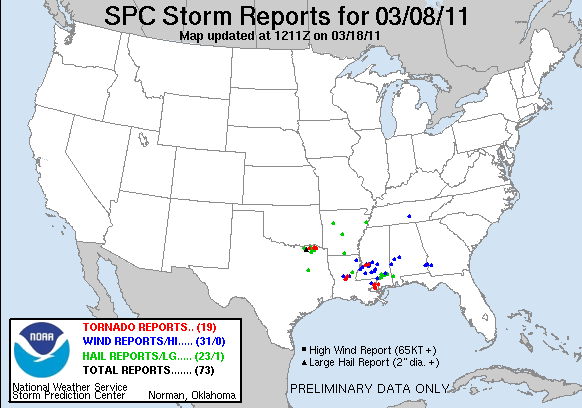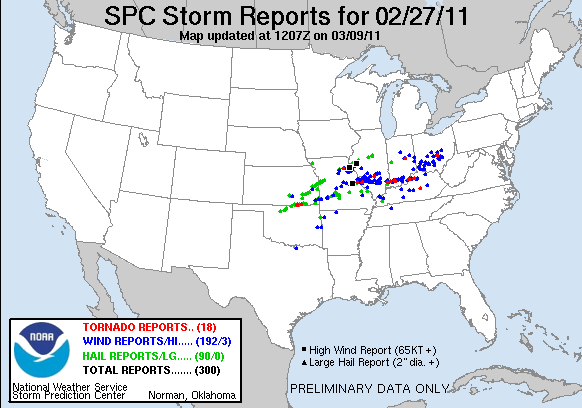 |
| Damage in Yazoo City, Missisippi in April of 2010 from an EF-4 tornado with a path length of 149 miles |
Saturday may bring a chance for a few severe storms in N TX. These storms would likely be supercellular structures, and would have the potential to produce very large hail, and less likely an isolated or possibly few tornadoes. The main question at the moment is if enough moisture will be available in the area with the greatest potential, and if the cap will be able to break before nightfall when convective inhibitation will substantially increase and likely kill off any storms that may form during the afternoon hours.
Sunday may also pose the threat for supercells along the dryline from southcentral to southeast Kansas through Central/East Oklahoma down to Central/East Texas. This setup has much more potential than Saturday, however the cap seems to be the main question for this setup as well. Any storms that form along the dryline will likely be extremely powerful supercells, and will have the potential to produce very large hail given CAPE possibly reaching 3000+ j/kg, and tornadoes- possibly strong, due to good wind shear and the high CAPE values along and ahead of the dryline. Again, the main question is if storms will be able to develop due to 700mb temperatures being on the high side, forming a capping inversion.
As of now, it appears a large and very dangerous tornado/severe weather outbreak is likely Monday across parts of the Arklatex reigion into Dixie Alley. This setup could potentially be the first high risk setup of 2011. Strong wind shear of 50+ kts and CAPE values exceeding 2000 j/kg should be enough to support supercells and bowing segments capable of producing large hail, damaging winds, and isolated tornadoes. Over parts of Dixie Alley, 850mb winds could be in excess of 50+ kts, pointing out the extreme energy this system will have. This severe weather event could even effect areas as far as Ohio, Indiana, Kentucky, Tennessee, and Illinois. This could be an especially dangerous day, so people need to pay attention to what is going on. As Monday comes closer, details will become more apparent, resulting in greater confidence in the forecast.
This system will likely continue to produce severe weather across the south into New England Tuesday and Wednesday before exiting into the Atlantic. If you live in any of the affected areas, stay tuned to later forecasts and listen to NOAA Weather Radios and local news for more details regarding this event.
Donovan Gruner
















